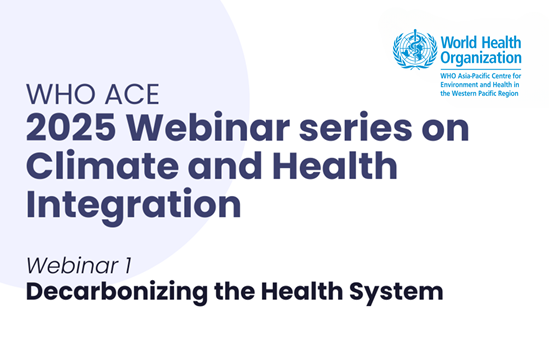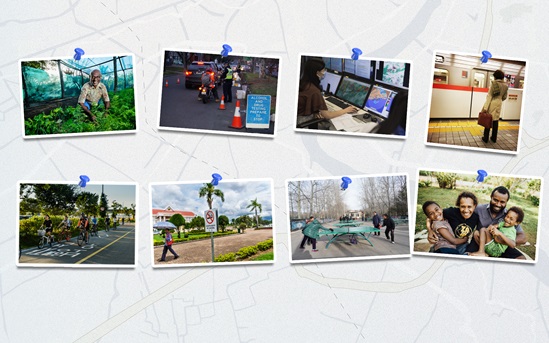A farmer in Lao PDR plucks dead leaves from the strawberries grown at the greenhouse. The strawberries are grown hydroponically to maximize production with minimum water and soil.
Climate change
Over the last 50 years, human activities have released sufficient quantities of carbon dioxide and other greenhouse gases to affect the global climate. The resulting changes in the global climate bring a range of risks to health, from deaths in extreme high temperatures to changing patterns of infectious diseases. Climate and weather variables pose threats to food and water security, and cause outbreaks of waterborne and vector-borne diseases. Moreover, the increased pressure on scarce resources triggers climate-related migration and conflicts. Under business-as-usual scenarios, it is estimated that between 2030 to 2050, climate change will cause an additional 250 000 deaths annually.
Health systems must be made more resilient, especially in developing countries, in order to respond to the impacts of climate change. There is a need for an interdisciplinary and holistic approach among governments, communities and individuals coupled with changes in behaviour and practices in order to reduce the impact of climate change and ensure sustainability.
Climate change is already impacting health in a myriad of ways, including by leading to death and illness from increasingly frequent extreme weather events, such as heatwaves, storms and floods, the disruption of food systems, increases in zoonoses and food-, water- and vector-borne diseases, and mental health issues. Furthermore, climate change is undermining many of the social determinants for good health, such as livelihoods, equality and access to health care and social support structures. These climate-sensitive health risks are disproportionately felt by the most vulnerable and disadvantaged, including women, children, ethnic minorities, poor communities, migrants or displaced persons, older populations and those with underlying health conditions.
In the short to medium term, the health impacts of climate change will be determined mainly by the vulnerability of populations, their resilience to the current rate of climate change and the extent and pace of adaptation. In the longer term, the effects will increasingly depend on the extent to which transformational action is taken now to reduce emissions and avoid the breaching of dangerous temperature thresholds and potential irreversible tipping points.
WHO supports countries in building climate-resilient health systems and tracking national progress in protecting health from climate change, as well as in assessing the health gains that would result from the implementation of the existing Nationally Determined Contributions to the Paris Agreement, and the potential for larger gains from more ambitious climate action.
WHO’s work plan on climate change and health includes:
- advocacy and partnerships: coordinating with partner agencies within the UN system, and ensuring that health is properly represented in the climate change agenda, as well as providing and disseminating information on the threats that climate change presents to human health and opportunities to promote health while cutting carbon emissions;
- monitoring science and evidence: coordinating reviews of the scientific evidence on the links between climate change and health; assessing country's preparedness and needs when facing climate change; and developing a global research agenda;
- supporting countries to protect human health from climate change: strengthening national capacities and improving the resilience and adaptive capacity of health systems to deal with the adverse health effects of climate change; and
- building capacity on climate change and human health: assisting countries to build capacity to reduce health vulnerability to climate change and promoting health while reducing carbon emissions.













